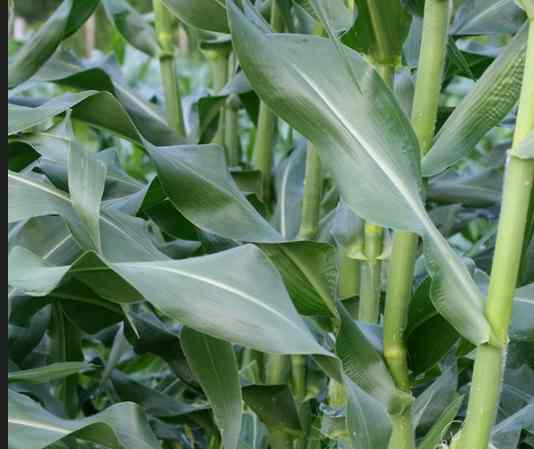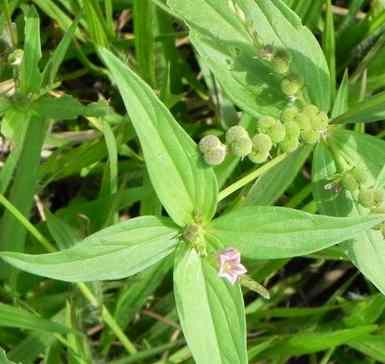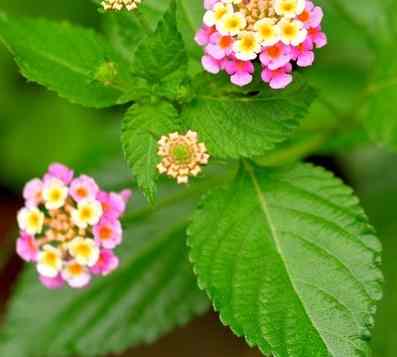
support@yorubalibrary.com
+2348073529208, 07038599574

Ewe Agbado (also called Ewe Igbado or Ewe Yangan), known as maize leaf in English, is one of the most commonly seen plants across Yoruba farmlands and communities. Though maize (Agbado) is widely recognized as a food crop, its leaves has a significant place in Yoruba traditional medicine. For different ages, healers and herbalists have utilized Ewe Agbado in various natural remedies, appreciating its soothing and healing properties. The plant is popular for its both physical, spiritual uses, and household remedies. In traditional Yoruba settings, every part of the maize plant — from the grain to the husk, stalk, and leaf — has a particular importance. Ewe Yangan is commonly dried or freshly crushed for preparing herbal infusions, concoctions, or ointments. Its subtle fragrance and gentle nature make it a preferred component in mixtures aimed at balancing the body system and improving health. Apart from its medicinal uses, Ewe Agbado also has symbolic value in rituals related to fertility, blessings, and abundance.
In traditional Yoruba settings, every part of the maize plant — from the grain to the husk, stalk, and leaf — has a particular importance. Ewe Yangan is commonly dried or freshly crushed for preparing herbal infusions, concoctions, or ointments. Its subtle fragrance and gentle nature make it a preferred component in mixtures aimed at balancing the body system and improving health. Apart from its medicinal uses, Ewe Agbado also has symbolic value in rituals related to fertility, blessings, and abundance.
Modern studies have shown that maize leaves contain beneficial compounds such as flavonoids, saponins, and tannins, which contribute to their healing effect. In Yoruba traditional medicine. Ewe Agbado remains a vital herbal plant for both herbal and cultural practices.
Key Facts
Category: Leaf
Botanical Name: Zea
Common Name: Maize Leaf
Yoruba name: Ewe Agbado
Igbo Name: Nil
Hausa Name: Nil
Characteristics
Ewe Agbado is a long, narrow, and lance-shaped leaf that grows alternately on a tall maize stalk. It is smooth on the surface, with visible veins running parallel from the base to the tip. When crushed, it releases a mild, grassy scent. The plant grows well in tropical regions and grows well under direct sunlight. The leaves are usually bright green when young but turn yellowish-green as the maize matures. These features make Ewe Agbado easy to recognize and harvest for traditional or medicinal use.
Have you heard of our Yoruba Herb Dictionary? This contains names of Yoruba Leaf, Roots, Barks, Characteristics, Properties & Identification with HD Pictures. Order below or download sample here
A-Z HERBS & LEAF DICTIONARY #4KIdentification Features
Ewe Yangan can be identified by its tall, firm maize stalk which can reach up to 2–3 meters in height. Each node on the stalk bears a single leaf sheath with a long blade extending outward. The leaf margins are smooth or slightly rough depending on the variety. During the growing season, the plant also bears tassels (male flowers) at the top and ears (female flowers) in the middle sections of the stalk. The distinct rustling sound of dry maize leaves in the wind is also a familiar identifying feature in rural Yoruba farmlands.
Uses
Ewe Agbado is popular for its diverse healing and cultural applications in Yoruba traditional medicine. Some of its recognized uses include:
1. Treatment of fever and body heat:
The leaf is boiled with other cooling herbs to produce a mild herbal drink used to reduce body temperature and internal heat.
2. Relief for urinary disorders:
Decoctions made from Ewe Agbado are used to cleanse the urinary tract and ease discomfort associated with urination.
3. Support for digestive health:
The leaf extract helps soothe the stomach, relieve mild indigestion, and calm inflammation in the digestive system.
4. Wound and skin care:
Crushed or pounded Ewe Agbado can be applied to skin wounds or minor burns to promote healing.
5. Treatment of menstrual irregularities:
Women sometimes use mixtures containing Ewe Agbado to regulate menstrual flow and ease abdominal discomfort.
6. Spiritual cleansing:
In traditional Yoruba rites, Ewe Agbado is used in baths to remove negative energy and restore emotional balance.
7. General detoxification:
Herbalists combine it with other leaves to prepare cleansing tonics that help flush toxins from the body.
Want to treat common ailments such as Malaria, Cough, Measles, Typhoid, Pile etc naturally without spending much? Grab a copy of Authentic Herbal Solutions: 15 Common Ailments & Their Natural Cures. A practical eBook recommended for everyone regardless of tribe, religion or association. Order below or Download sample here
AUTHENTIC HERBAL SOLUTION #4KOne Yoruba proverb says "Bí olóde ò kú, òde rè kì í wu Gbégi". Do you know that Gbégi is actually a leaf/plant? Get Yoruba Proverbs on Plants and Herbs, which is a collection of Untold Wisdoms Hidden in Leaf and plants comprising their Life Applications & Moral Teachings. Order below or download sample here
YORUBA PROVERBS ON PLANTS #4KConclusion
Ewe Agbado is a one-in-all herbal plant within Yoruba traditional medicine, where even a common agricultural plant is recognized for its healing potential. Its presence in both food and medicine shows the Yoruba belief that nature provides for every aspect of human life - from physical wellness to spiritual purification.

Learn about Ewe Aran, a potent Yoruba medicinal le…

Check out details of Ewe Ewon Agogo (aka Ewon Adel…